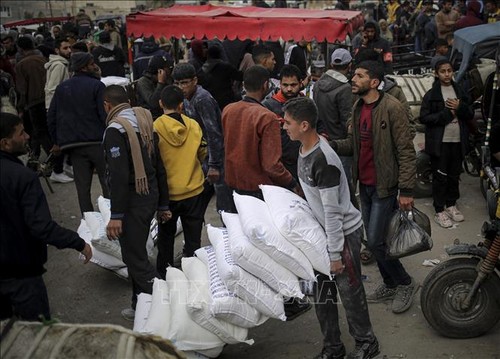 Illustrative image (Photo: AFP/VNA) Illustrative image (Photo: AFP/VNA) |
The fighting between Hamas and Israel in Gaza has put upward pressure on prices of key commodities like oil and gold, and a worst-case scenario shock to oil prices could increase global inflation, WB warned.
A key force for disinflation, falling commodity prices, has essentially hit a wall, WB chief economist Indermit Gill said, and that means interest rates could remain higher than currently expected this year and next.
WB estimates that a moderate conflict-related supply disruption could raise the average cost of Brent crude oil to 92 USD per barrel, while a severe disruption could push it above 100 USD. That scenario would have the impact of raising global inflation nearly one percentage point this year.
As well as delaying interest rate cuts, it could also increase food insecurity, which already worsened markedly last year.